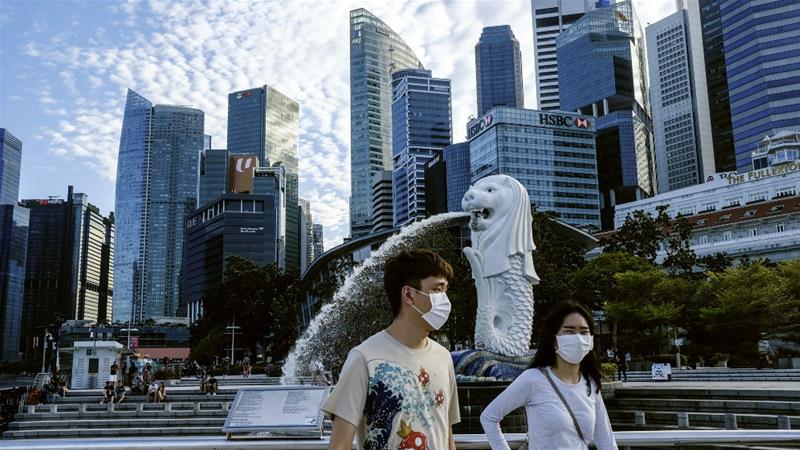
Bank lending in Singapore fell for the third consecutive month in May as the contractionary effects of the lockdown hit the economy.
The island city-state recently emerged from the so-called “circuit-breaker” period, when measures restricting the operations of non-essential services were imposed from early April.

Access deeper industry intelligence
Experience unmatched clarity with a single platform that combines unique data, AI, and human expertise.
Total loans from the domestic banking unit – which captures lending in all currencies, but mainly reflects Singapore-dollar lending – slipped 0.6% month-on-month to $685.3bn in May. This is down from the $689.7bn disbursed in April.
Still, this is a 5% increase from the lending a year ago, the Monetary Authority of Singapore (MAS) outlined on Tuesday.
May’s decline was heralded by a 0.7% dip in total business loans to $430.6bn, from $433.76 billion in April. This follows a 2.2% drop in loans to financial institutions to $103.5bn, and a 2.7% drop in general commerce loans to $65.5bn.
Interestingly, business loans posted a 3.0% increase in disbursement from a year ago, that were “likely aided by the loan financing schemes extended by the Singapore government,” OCBC’s head of treasury research and strategy, Selena Ling points out.

US Tariffs are shifting - will you react or anticipate?
Don’t let policy changes catch you off guard. Stay proactive with real-time data and expert analysis.
By GlobalDataThirteenth consecutive month of decline in consumer loans
These measures boosted year-on-year loans disbursed to business services (+14.7%), transport, storage and communications (+13.7%), financial institutions (+5.7%), building and construction (+4.5%) and manufacturing (+4.0%).
Meanwhile, consumer loans were also down a notch of 0.5% to $254.7bn in May, from $255.9bn in April. This marks the segment’s 13th consecutive month of decline.
“Consumer sentiments weakened and consumption appetite took a nosedive amid the domestic growth downturn,” Ling says of the dip.
Market watchers attribute this to the closure of retail and food and beverage outlets, coupled with the travel restrictions in place.
The closure of car dealerships and showrooms and the suspension of the Certificate of Entitlement bidding exercise in this time, took a hit, with car loans declining to a four-year low.
On a year-on-year basis, car loans were down 5.2%, making May the fifth consecutive month of decline.
Loan growth to remain slow in coming months
Meanwhile, housing and bridging loans contracted 1.3% year-on-year, while share financing plunged 16.3%.
Looking at May’s lending rates, Ling expects loan growth to remain tepid in the months ahead.
“Bank loans grew at just 2.2% year on year for the first five months of this year, which suggests room for disappointment going ahead as the recent June MAS survey of professional forecasters had tipped a full-year loan growth forecast of 2.8% year on year,” she shares.
She flags consumer loans as an area of concern as private consumption “may remain cautious” in the near-term amid second wave infection concerns globally and anticipation of a softening domestic labour market.
Additionally, Ling expects lenders to also exercise caution about potential credit deterioration that is “likely to follow a sharp economic downturn”.
“The risk remains that overall bank loans growth could actually contract in the coming months if there is no snapback in consumer demand and business capital expenditure intentions,” she reiterates.
Shares of all three banks were up on Tuesday, with DBS gaining 28 cents or 1.34% to close at $20.80 and UOB rising by 1.5 cents or 0.75% to $20.23. OCBC meanwhile closed at $9.00, up 9 cents or 1.01%.







